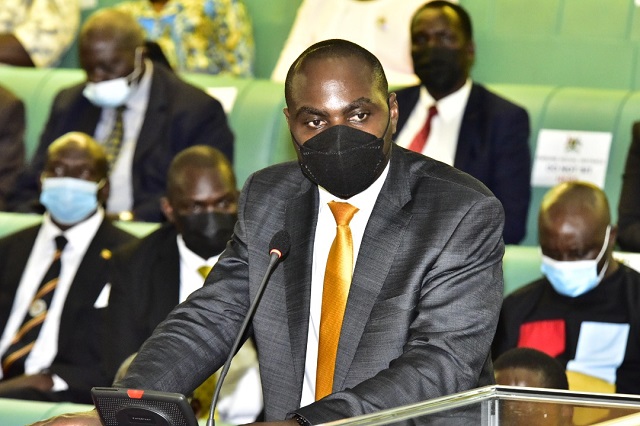
Kampala, Uganda | THE INDEPENDENT | Legislators on Parliament’s Finance Committee on Friday disagreed over a proposal by government to impose a flat rate of 12 percent on the gross rental income of individuals for a year of income.
The proposal is under the Income Tax (Amendment) Bill, 2022 currently being scrutinised by the committee.
“Clause 3 amends Section 5(3) of the Income Tax Act to provide that an individual who earns rental income shall not be entitled to a deduction of any expenditure or losses incurred to derive such income for each year of income; to provide that a person other than an individual or partnership is entitled to a deduction of any expenditure or losses incurred to derive such income for each year of income,” reads part of the Bill.
Henry Musasizi, the Minister of State for Finance in charge of General Duties further noted that section 22 (1) of the principal Act is further amended to provide for non-deduction of any expenditure and losses incurred by an individual to drive rental income.
He said that the mortgage interest deduction that has been allowed to individuals has been factored into the new proposed flat rate of 12 percent and is therefore rendered unnecessary.
Government also provides for capping of the allowable deductions of a person, other than a partnership in the production of rental income for a year of income, a maximum of 50 percent of the rental income of that year.
“The excess unclaimed expenditure and losses would be carried forward to the subsequent year of income,” Musasizi explained. “This is intended to limit the deductible expenditure and losses incurred by a person who is not an individual or a partnership, and ensure that such persons makes a revenue contribution for each year in which they derive rental income. The carrying forward of the excess expenditure and losses ensures that the tax payer is not disadvantaged.”
Moses Kaggwa, the Director Economic Affairs in the Ministry of Finance explained that this proposed tax regime is to cure the situation where companies were declaring losses and that the failure of individuals to keep income and expenditure records.
However, MPs were opposed to this new tax regime saying it favours companies that own rentals at the expense of individuals and that it would in return shift the burden on tenants.
Nathan Nandala Mafabi, the Budadiri West MP said that there are individuals who can prepare returns but government is assuming that all of them can’t, hence imposing a flat rate. This was after Musasizi said that Uganda’s economy is largely informal and that most of the individuals don’t keep records hence difficult for them to ascertain their income.
Paul Omara, the Otuke County MP supported the proposal that seeks to bring in more tax revenue but said that companies should not benefit more at the expense of individuals.
Muhammad Nsereko, the Kampala Central MP said he is against the tax and that if it has to be implemented, it should follow the inflation pattern.
Minister Musasizi said that the tax is to simplify tax administration and that once this is simplified, government will raise more revenue.
After failing to build consensus, Keffa Kiwanuka, the Finance Committee Chairperson said that the MPs would discuss the matter further and come up with a recommendation.
The Income Tax (Amendment) Bill, 2022 is among the 9 tax Bills that Minister Musasizi presented before the committee. The others are the Stamp Duty Amendment Bill, Tax Procedures Code (Amendment) Bill, Excise Duty (Amendment) Bill, Value Added Tax (Amendment) Bill, Tax Appeals Tribunal (Amendment) Bill, the Finance Bill, Traffic and Road Safety (Amendment) Bill and the Uganda Revenue Authority (Amendment) Bill.
“The proposed amendments on the various tax laws mainly provide clarifications of ambiguous provisions, close loopholes in the tax laws and simplify the tax laws with a view of supporting tax administration and promoting voluntary tax payer compliance, which will ultimately enhance revenue mobilisation and collection,” said Musasizi.
Domestic revenues for the coming financial year 2022/2023 are projected to amount to 25.54 trillion Shillings. Out of this, tax revenue is 23.755 trillion and Non Tax Revenue (NTR) 1.79 trillion.
 The Independent Uganda: You get the Truth we Pay the Price
The Independent Uganda: You get the Truth we Pay the Price


